It's Time to Talk About Tesla With Sanity

Before joining the gang at TTAC, I was freelancing, and a lot of my work centered around electric vehicles. Which means I was reading and writing a lot about Tesla, especially during that time a few months ago when the small California-based automaker somehow became the most valuable automaker in the world, at least from Wall Street’s perspective, based solely on its potential.
Some of my work took me into the depths of the pro-Tesla blogosphere. While these sites can serve as valuable sources for news about the company, they also have an unabashed pro-Tesla stance. Objective, they (mostly) ain’t.
And that’s okay – while many, if not most, media outlets default towards being as objective as possible, there’s no rule stating that your blog or outlet has to be objective. It’s okay for HuffPo to be leftist and National Review to lean right. And so it is with outlets that cover Tesla – no one expects Teslarati to be critical of the brand.
It’s one thing to have pro-Tesla blogs, of course, but another to be unable to even talk about the brand without dividing into two tribes – the fanboys who think Tesla is the best company ever and can do no wrong (as it disrupts the industry and solves every one of the world’s problems), and the “haters” who think that Tesla is doomed to fail any day now and it’s a minor miracle the company has lasted this long.
Yet, just about any article about Tesla, no matter how mundane, ends up with commenters bloviating on how great Tesla is and how the sun shines out of Elon Musk’s nether regions or how the company sucks and should be shoved into those same nether regions.
All this divisive noise doesn’t make sense. Tesla is a small car company that’s done some unique and interesting things. It’s had some successes and some failures, and in the future it will continue to experience successes and failures. Nothing more, nothing less.
And yet, for a brief moment earlier this summer, Wall Street had it valued higher than General Motors. Because why, exactly?
Yes, I know, I know. Wall Street loves to bet big on future success, and Tesla was seen as being a surefire gamble.
“Model 3” is what you’re screaming right about now. You’re going to remind me, vocally, that the Model 3 will “change the game” and put Tesla over the top and turn it into the Apple of automakers and the rest of the industry will be lucky to hold on as Tesla rises to the top, first with the Model 3 and then with a bevy of other mainstream, affordable electric vehicles.
Hold up there, sport. The Model S has been on our roads for years; it’s a fine vehicle with a reasonable real-world range and some cool tech, and yet, people still buy the 7 Series and the S-Class. Hmm.
Not to mention that Chevrolet beat the Model 3 to market with its own affordable EV (the Bolt) that has a 200-mile-plus range. Yes, that Chevrolet. The same one that’s part of the “dinosaur” that is GM – the same GM that needed government help to survive the Great Recession. The same GM that Tesla passed in valuation just a couple months ago.
This isn’t a comparison of the two cars – I’ve driven neither, so I can’t say which is better. And yes, Chevy probably did botch the marketing of the Bolt launch (go ahead, Chevy, promote your car — don’t be shy), which did it no favors. But lavishing Tesla with praise for doing the same thing one of its main rivals did, and did sooner, while ignoring said rival, strikes me as odd and very cultish.
If the 7 Series and 5 Series and S-Class and E-Class survived the threat posed by the Model S, well, there’s no reason the 3 Series and Audi A4 and other entry-luxury sedans should be quaking in their boots. There are several reasons why the Model 3 probably won’t “disrupt” the automotive industry in the way the tech and business press expects.
For starters, cars are not a rational or logical purchase for many people. For example, a family could be comparing the Model 3 to the 3 Series, and the Model 3 could make more sense for them from a financial and logical standpoint, and yet they could still come home with the Bimmer. Why?
Styling preference, for one. Or brand loyalty, if they’ve owned a BMW previously. Or aspiration – maybe Mom or Dad have been lusting after a BMW for 20 years and can now finally afford it after that big promotion. Perhaps after a test drive, they just like how the BMW rides and handles better.
Note that none of those reasons have anything to do with the inherent drawbacks of owning an EV – range anxiety, charge times, finding a charger, installing a charger at home, et cetera. Nor do I get into the math of whether it’s more cost-effective to go EV or stick with gas – an equation that will vary from person to person, even with government incentives factored in.
Buying a car is simply a fairly complex purchase, and more fraught with emotion than any other common big-ticket item, save perhaps homes (of course, most of us buy cars more often than homes). Unlike cars, no one cares much about the styling of their home appliances (at most, they worry about matching the other appliances in the kitchen) and appliances don’t offer the experience driving does. As long as they work, no one gives a damn.
Smartphones are the only other big-ticket item that involve emotion in the buying decision to a high level, but even then, it’s probably not to the extent that it is with cars. When I left Android behind for Apple a few years back, the design was part of the reason for the switch, but it had more to do with pragmatic reasons such as battery life and a larger ecosystem of available apps. If the Droid universe had been better at those things back then, I might’ve stayed.
The Model 3 could live up to its billing, make good on all of Tesla’s promises, and still not be on the radar for some people. That could even hold true down the line as range increases and charge time decreases and as EVs become easier to live with.
Another potential pitfall for the Model 3 – price. An affordable base price doesn’t mean it won’t get nuts with options, and that will turn some buyers away. You’ll need to add $9K for better battery range, for example, and it will be easy to spend $50K on a Model 3.
This doesn’t mean the Model 3 will be a disaster if it doesn’t upend the industry. I suspect it’s going to sell well and make Tesla a pretty penny, and that’s good for them. Expectations don’t need to be sky high, though. Why can’t we, as observers, note that if the Model 3 sells well, that in and of itself will be a success?
That’s the problem with talking Tesla. If the 3 does well but fails to take electric-vehicle market share from the tiny percentage it is now to a greater slice of the pie, the fanboys are going to be disappointed and the anti-Tesla crowd will sharpen their knives.
That’s insane. Let’s look at Tesla for what it is, and not what it might be. It’s a small car company that sells two, and soon three, models, all with electric powertrains. It also offers cool tech like Autopilot, and the Model S was the first mass-produced EV to have decent range. Tesla’s supercharger network may reduce charge times and provides peace of mind to owners on road trips. The company is trying to pioneer a business model that lets customers buy direct from the factory, which may eventually prove advantageous to consumers. Autopilot may help the industry improve autonomous tech across the board. All good things! Plus, who knows what the gigafactory might do for the brand?
But it’s also a company that’s struggled with production delays, sexual-harassment lawsuits, and has failed to meet promised deadlines. Fairly standard problems for many corporations, large and small, but problems nonetheless. It’s not all sunshine and rainbows, and I’m not even discussing the influence of Musk himself – the young and popular CEO who has guest-starred on shows like The Simpsons, South Park, and The Big Bang Theory, and is active on Twitter – to the point that he occasionally tweets his way into hot water. Musk’s presence is certainly a part of the reason why the brand gets the attention it does.
Journalists, enthusiasts, and consumers should be looking at Tesla with a more objective eye. It’s an interesting company, sure, and one that does things differently, but it’s still just a car company. It may yet upend the industry, or it may simply slide into the mainstream, or it may someday fail.
Maybe its sales model will undo the current status quo, maybe it won’t – or maybe it will just make traditional dealers be better at customer service. Maybe Autopilot will underpin self-driving cars, maybe it won’t. And so on.
Already, some folks have jumped into the comments to call me a “hater” in the pocket of “big oil.” I assure you, I do not hate Tesla. I’ve driven the Model S twice, and while each drive was under 10 minutes, I found it to be a fine car, at least from what I could tell in such a small sample. I’m intrigued by both the tech and, as a former dealer employee as well as industry observer, the sales model. As far as I can remember, I’ve had only polite and professional interactions with the company and its employees.
Nor do I hate EVs. I do love internal-combustion-engine sports cars, but I also appreciate EVs for their instant torque and silent driving. I also foresee a future where most vehicles, whether driven by humans or autonomy, will be an EV or at least have an electrified powertrain. That future may be a very long way off, given the current EV market size, but I can see a time in which commuters drive EVs while gas (and some diesel) engines are relegated to sports cars and pickup trucks.
I’m just tired of the noise. I’m tired of one sector of the Tesla-verse giving the company the kind of pleasure and praise one normally saves for their partner, while another group looks to kick the company around at any and all opportunities. I’m tired of the business and tech press acting as if Tesla just invented the automobile.
Not looking at Tesla through an objective lens does us all a disservice. Consumers don’t get the truth about the company and its products without that truth either being filtered through glasses colored in the most extreme shade of rose or through the lens of those who want Tesla to fail.
I do think the Model 3 will be successful, if we define successful as being profitable and selling at a reasonable volume. I also think there will be growing pains – missed deadlines, quality issues, et cetera – and I don’t think the car is going to sell 500,000 units in a year any time soon. That would put it in best-selling car territory (Ford’s F-Series sold over 700,000 units in 2016, by comparison), and I don’t think that’s going to happen, especially since some buyers will be turned off by the price walk needed to get more-desirable features.
That’s okay! Tesla aimed high, and it won’t be a disaster for the company if it falls short, especially since it has other irons in the fire, like the upcoming semi-truck. I just don’t expect nuance on the part of the market and a good chunk of the media, and that’s a shame.
Tesla may change the industry – and world – in small but important ways, but don’t expect it to be a “savior.” Don’t expect it to crash and burn, either. Just observe it, think critically, and understand that no matter how cool it may seem, it’s just another automaker.
[Images: Teslas Motors]

Tim Healey grew up around the auto-parts business and has always had a love for cars — his parents joke his first word was “‘Vette”. Despite this, he wanted to pursue a career in sports writing but he ended up falling semi-accidentally into the automotive-journalism industry, first at Consumer Guide Automotive and later at Web2Carz.com. He also worked as an industry analyst at Mintel Group and freelanced for About.com, CarFax, Vehix.com, High Gear Media, Torque News, FutureCar.com, Cars.com, among others, and of course Vertical Scope sites such as AutoGuide.com, Off-Road.com, and HybridCars.com. He’s an urbanite and as such, doesn’t need a daily driver, but if he had one, it would be compact, sporty, and have a manual transmission.
More by Tim Healey
Latest Car Reviews
Read moreLatest Product Reviews
Read moreRecent Comments
- ToolGuy This thing here is interesting.For example, I can select "Historical" and "EV stock" and "Cars" and "USA" and see how many BEVs and PHEVs were on U.S. roads from 2010 to 2023."EV stock share" is also interesting. Or perhaps you prefer "EV sales share".If you are in the U.S., whatever you do, do not select "World" in the 'Region' dropdown. It might blow your small insular mind. 😉
- ToolGuy This podcast was pretty interesting. I listened to it this morning, and now I am commenting. Listened to the podcast, now commenting on the podcast. See how this works? LOL.
- VoGhost If you want this to succeed, enlarge the battery and make the vehicle in Spartanburg so you buyers get the $7,500 discount.
- Jeff Look at the the 65 and 66 Pontiacs some of the most beautiful and well made Pontiacs. 66 Olds Toronado and 67 Cadillac Eldorado were beautiful as well. Mercury had some really nice looking cars during the 60s as well. The 69 thru 72 Grand Prix were nice along with the first generation of Monte Carlo 70 thru 72. Midsize GM cars were nice as well.The 69s were still good but the cheapening started in 68. Even the 70s GMs were good but fit and finish took a dive especially the interiors with more plastics and more shared interiors.
- Proud2BUnion I typically recommend that no matter what make or model you purchase used, just assure that is HAS a prior salvage/rebuilt title. Best "Bang for your buck"!




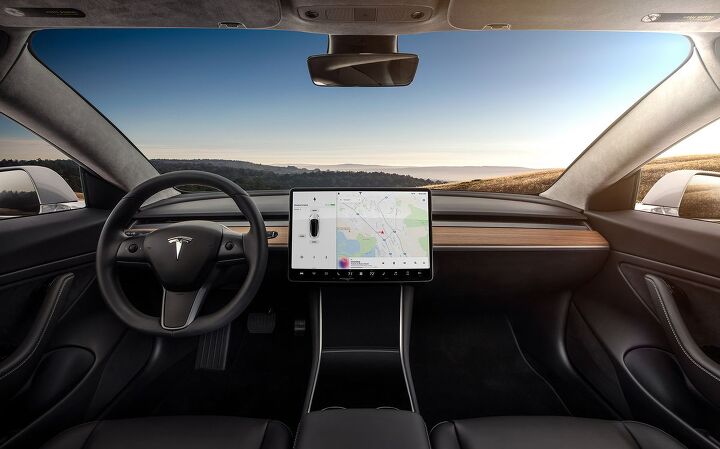
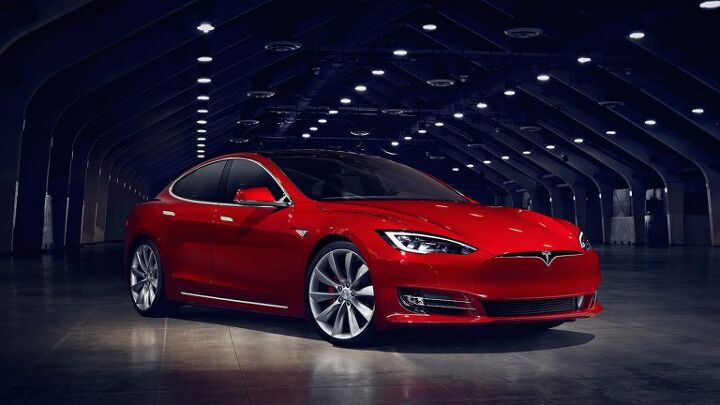
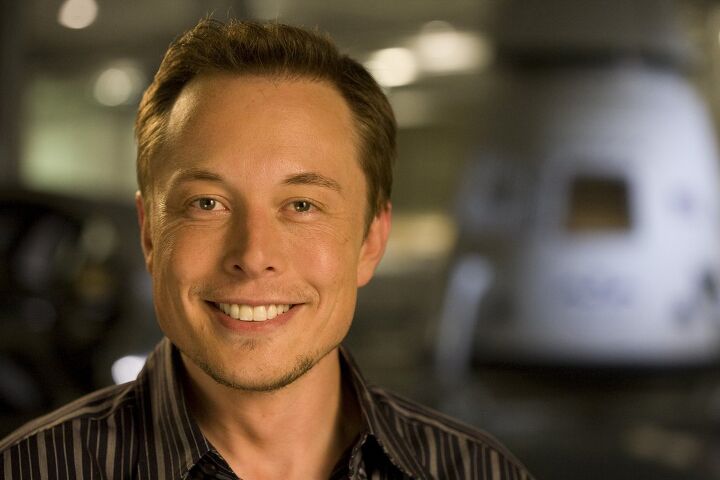

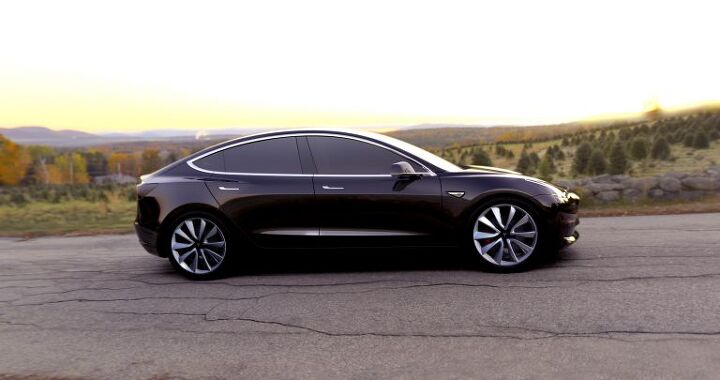
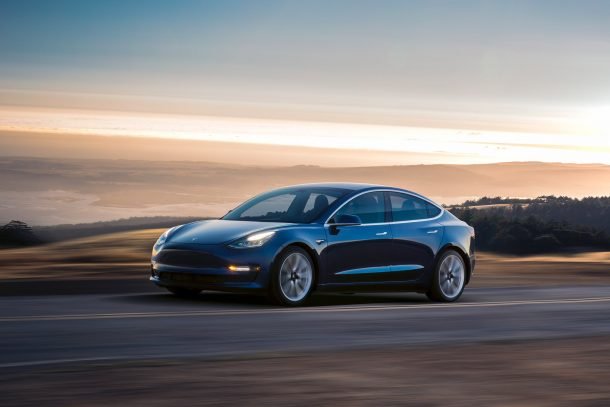















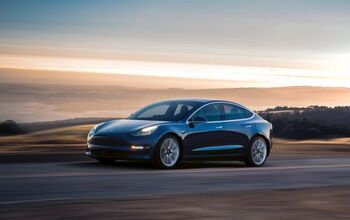



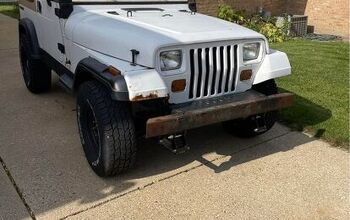




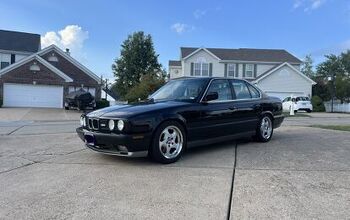




Comments
Join the conversation
" 'Yet, just about any article about Tesla, no matter how mundane, ends up with commenters bloviating on how great Tesla is and how the sun shines out of Elon Musk’s nether regions…' 'And THAT is why I can’t stand Tesla.' " I have no skin in this game... but I have not observed anything like this. Tesla is indeed a lightning rod. It attracts attention from all sides. But personally, I have observed as much mindless criticism as mindless support. Both are silly, of course......
Was talking to the wife about our next car purchase and I said, "Our next car will be gasoline powered, but the car after that could well be electric." I am looking at my next car being a 2005-6 Lexus LS, and I fully intend to mile that thing out to 600K KM, so then I'll be looking at a used Tesla Model S in about 15-18 years from now. They should have this electric thing squared away by then.